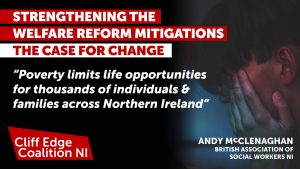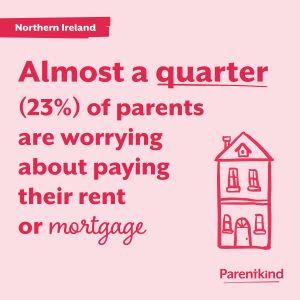Reframing Fiscal Responsibility
26 February 2024
By Dr. Lisa Wilson
Reframing Fiscal Responsibility: Why getting rid of ‘Super-Parity’ in Northern Ireland is not the answer
This blog post was first published by the Nevin Economic Research Institute
Northern Ireland ministers are facing renewed calls to prove their fiscal responsibility by raising more by getting rid of so-called areas of ‘super parity’. Contrary to what you may have read in newspaper opinion columns, it is the NI Executive and its Programme for Government that should identify how and where money is spent (or not) in Northern Ireland, not a list of areas where we spend money differently. Areas in which money is spent differently from England are not necessarily a bad thing. Rather they are the very point of devolution.
While the aim of getting Northern Ireland’s public finances onto a more sustainable path is necessary and now unavoidable, we need to be careful not to conclude that getting rid of areas of policy divergence is the silver bullet to delivering sustainable public finances in NI.
In the end, if Northern Ireland is to be successful in doing this, moving to a needs-based approach is important. More important than this even is the broader UK public finance settlement.
Responsibility for delivering sustainable public finances does not lay solely with the devolved government. And getting rid of super-parity is certainly not a silver bullet. The UK Government is responsible for the sustainability of UK public finances, of which Northern Ireland contributes its part. Even the most fiscally responsible NI Executive cannot alone ensure the delivery of – and so make sustainable – public finances. And ultimately if the UK public finances are not sustainable (which they aren’t) then Northern Ireland’s cannot be either.
Notwithstanding that, let’s focus on the so-called areas of super-parity.
First, a reminder of what super-parity is, and what it is not. Super-parity refers to areas where Northern Ireland has made policy choices to diverge and as such forego certain streams of revenue or spend differently compared to other parts of the UK. Areas of policy divergence include existing welfare mitigations; housing benefit rates; university tuition fees; industrial de-rating; low-income rate relief; vacant property rate relief; freight/transport rate relief; landlords’ allowance; prescription charges; domiciliary care charges; concessionary fares; domestic water charges; air passenger duty.
The Independent Fiscal Commission estimated that in 2020/21 areas of ‘super-parity’ cost Northern Ireland around £600 to £700 million, or circa 4% of the Northern Ireland Budget. In totality, not small change.
Super-parity is not, however, Northern Ireland receiving superior or advantageous treatment compared to counterparts in other parts of the United Kingdom. Northern Ireland does not receive additional monies to fund these. They are funded from within our existing funding allocation. Areas of super-parity, that is, the existence of policy divergence, are also not pure populist indulgence. That conclusion is a flawed one – and amounts to an affront to the very point of devolution.
But what the NI Executive have not been good enough at in the past, is confront the reality that having these policy divergences costs a considerable amount of money. They are now being hand wrangled into accepting this as part of their commitments in the new financial deal. That means that either delivering everything else on par with England or balancing the books is that bit more challenging. It has never been admitted in the past that delivering additional policies beyond those delivered in England involved what one might call ‘robbing Peter to pay Paul’.
And so now the NI Executive is now confronted with having to game the trade-offs or redistribution of resources inherent in certain policies or decisions – and face up to the fact that this is involves choices. This will be made all the harder by the fact that there have never been so many calls of public spending in NI.
But just because the NI Executive is now tasked with implementing a plan on sustainable public finances does not mean that we have to give up on areas of policy divergence, which the NI Executive chooses. The Programme for Government should identify the policy priorities and spending decisions in Northern Ireland, not a list of areas which show where we spend money differently from England.
Delivering sustainable public finances should not come at the expense of those who need the state the most. The forthcoming Programme for Government should recommit to what has always been a shared goal in previous iterations – tackling poverty and social exclusion.
One of the main principles that has consistently run through previous Northern Ireland Programmes for Government has been a commitment to reduce poverty and social exclusion. Perhaps some of the strongest evidence of the modest progress towards this goal has been the implementation of super-parity measures. These limited achievements have been understated in their power in shielding NI residents from highly regressive charges like water charges or the worst impacts of welfare cuts via welfare mitigation packages or discretionary support.
Additionally, these measures have provided essential reliefs for low-income households and those reliant on our social security system. And so, despite criticisms levelled at the government in Northern Ireland perhaps one of the clearest indicators of the success of the Northern Ireland Executive has been that through some of these measures, they have made some progress in achieving their own worthy goal – protection of the poorest. Which is itself, a significant policy divergence from the priorities of Westminster governments since 2010.
Dr. Lisa Wilson is a senior economist at the Nevin Economic Research Institute








